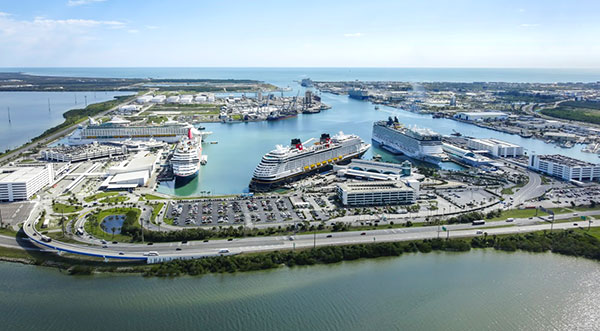What Florida’s Gambling Industry Can Learn from Australia’s Playbook
By Space Coast Daily // April 29, 2025

The strict online gambling laws in Florida often lead players to offshore sites. Florida has the chance to proactively model policies that balance consumer freedom with player protection. This article examines lessons from Australia’s online gambling market and its regulatory challenges.
Worldwide, online casinos provide entertainment to millions of people. Nonetheless, regulatory approaches vary greatly. In both places, the challenge is to balance consumer demand with legal frameworks. If Florida learns from Australia’s successes and failures it could develop strategies to regulate online casinos so players have choice and safety without squashing an activity that is increasingly popular.
Online Casinos Attract Players Around the World
Players like online gambling because it is convenient and it offers variety. All platforms feature online slot machines and live dealer games that can be played from any device. By the end of 2025, the global online gambling market will exceed $84 billion. Players seek out these platforms for social and strategic engagement, as well as for wins.
What’s driving millions toward online casinos? The key is their ability to adapt. Innovations like Bitcoin payments at crypto casinos or live dealer games keep experiences fresh. Offshore casinos can fill the void for states like Florida, where legal options are sparse. Australian players also look to international platforms, with 15% of the adult population playing offshore despite local restrictions.
The Reason Crypto Casinos Gained Popularity
So let’s talk about crypto casinos – because hey, they’re a big deal down under. Aussie players are flocking to offshore platforms because of the instant deposits, low fees and anonymity of using Bitcoin or Ethereum. No bank approvals, no sharing of private financial details – just you, your crypto wallet, and a digital roulette table.
Many of the crypto casinos have offshore licenses from Curacao or Malta. They can offer games globally, but lack the protections of regulated local operators. Always read the fine print for red flags like shady bonus rules, high wagering requirements or hidden fees for converting crypto to cash. Verify that the site uses some basic security features (SSL encryption is recommended). If you love tech and privacy, crypto casinos can be a blast, but do your due diligence to keep your crypto safe.
Australia’s Regulatory Tightrope
Australia’s Interactive Gambling Act (IGA) of 2001 prohibits domestic operators from offering online casino games. However, it doesn’t criminalize players using offshore sites. This loophole has created a paradox: while local businesses are restricted, Australians spend roughly $1.5 billion annually on offshore platforms. The IGA focuses on penalizing operators, not players, leaving consumers in a legal gray area.
This approach highlights a critical lesson. Strict laws don’t eliminate demand; they redirect it. Without local oversight, players lack protections like dispute resolution or guaranteed payouts. Florida faces a similar issue, where ambiguous laws push residents toward unregulated platforms. Australia’s experience shows that outright bans rarely work – regulations must be based in reality.

Florida’s Gambling Quandary
Florida permits tribal casinos and horse racing but bans most online casino games. Despite this, an estimated 20% of adults in the state have used offshore platforms. The disconnect between law and behavior creates risks. Players often have no recourse if offshore sites withhold funds or engage in unfair practices.
Could legalizing and regulating online casinos reduce these risks? Australia’s struggle suggests that clarity is key. By establishing a licensing framework, Florida could ensure operators meet safety standards while generating tax revenue. Tribal partnerships, similar to Australia’s collaboration with local entities, might offer a path forward.
Offshore Platforms Filling the Void
Offshore casinos dominate markets where local options are limited. These platforms often hold licenses from jurisdictions like Malta or Curaçao, allowing them to operate globally. They attract players with generous bonuses, diverse games, and innovative features like live-streamed tournaments.
But reliance on offshore sites has downsides. Players sacrifice consumer protections, and regulators lose oversight. Florida can learn from Australia’s partial solutions, such as allowing licensed international operators to advertise locally under strict conditions, blending access with accountability.
Crafting a Balanced Regulatory Framework
Effective regulation requires nuance. For instance, the UK Gambling Commission requires operator transparency, player verification and spending limits. All these measures lessen harm without restraining industry growth. Perhaps Florida will use a hybrid model like seen in other states.
By legalizing online casinos with state oversight, it is possible to mandate features like deposit limits and self-exclusion tools. If you taxed revenue from licensed operators like Pennsylvania does, you could pay for public programs. This kind of approach takes into account the popularity of online gambling while focusing on safety.

Responsible Gambling as a Priority
Online casinos are certainly here to stay. They provide entertainment for people around the world. However, Florida stands at the crossroads: It could stick with tough laws that force players to go offshore or it could come up with new rules that protect customers while letting the industry grow.
No regulatory system succeeds without emphasizing player welfare. Reputable platforms integrate tools like reality checks, loss limits, and 24/7 support chats. Florida should require similar measures to keep players safe.
By promoting transparency, accountability and player choice, Florida can create a gambling scene that promotes freedom without sacrificing protection. The stakes are high, but the benefits – safer player options, a healthy industry – are well worth it.












